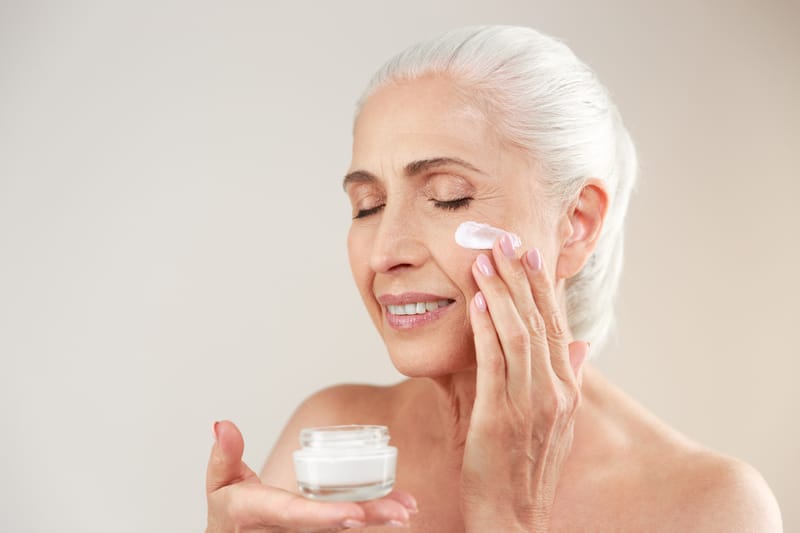Ceramides are the unsung heroes of skin hydration and barrier repair, but with so many ceramide moisturizers on the market, how do you choose the right one for your skin? This comprehensive guide will walk you through the essentials of selecting a ceramide moisturizer that suits your skin's unique needs.
Key Takeaways:
- Understand the role of ceramides in skin health and how they contribute to moisturizing and barrier repair.
- Learn the factors to consider when choosing a ceramide moisturizer, including skin type, skin conditions, ingredient list, and product formulation.
- Discover the importance of combining ceramides with other skin-friendly active ingredients for enhanced benefits.
The Importance and Benefits of Ceramides in Skin Care
Essential Ceramides are lipid molecules found naturally in the skin that play a crucial role in maintaining the skin's barrier and retaining moisture levels. Think of them as the mortar between the bricks of your skin cells; they hold the cells together and prevent moisture loss. A ceramide moisturizer replenishes these essential lipids, helping to restore the skin's protective layer, improve hydration, and protect against environmental aggressors.
When the skin's ceramide levels are low, it can lead to dryness, irritation, and increased sensitivity. This is why incorporating a ceramide moisturizer into your skincare routine is especially beneficial for those with dry or compromised skin. However, even those with normal or oily skin can benefit from the protective properties of ceramides.
In general, Ceramides are a powerful tool for keeping your skin hydrated and your skin barrier healthy. So not only can Ceramide products be crucial if you're looking to turn back the clock when it comes to your skin, but they can also be a key part of nourishing and soothing your skin if you struggle with dry skin conditions no matter what your age is.
Ceramide moisturizers seal moisture into the skin, preventing redness, itching, cracking, and irritation caused by dry skin. They are featured in some moisturizers because they are a normal component of the epidermis and because of their importance in maintaining the health and function of skin.
Identifying Your Skin Type
Before diving into the sea of ceramide moisturizers, it's crucial to identify your skin type. This will significantly influence your choice of product. For instance, if you have dry skin or mature skin, you'll want a richer, more emollient ceramide moisturizer that can provide intense hydration. On the other hand, if you have an oily skin type or acne-prone skin, look for a lightweight, non-comedogenic formula that won't clog pores.
Sensitive skin types should opt for a ceramide moisturizer free from potential irritants like fragrances, essential oils, and alcohol. Those with eczema or psoriasis can particularly benefit from a ceramide-rich moisturizer, as it can help repair the skin's barrier and reduce inflammation.
Deciphering the Ingredient List
When choosing a ceramide moisturizer, the ingredient list is your best friend. Ceramides should ideally be listed near the top, indicating a higher concentration. However, ceramides are often listed under different names, such as ceramide AP, ceramide EOP, ceramide NG, and so on. Don't be discouraged by these variations; they are all beneficial.
In addition to ceramides, look for other skin-loving ingredients that work synergistically with ceramides, such as cholesterol and fatty acids. These ingredients mimic the natural composition of the skin's barrier and can enhance the moisturizer's effectiveness. Hyaluronic acid, glycerin, and niacinamide are also excellent companions to ceramides, offering additional hydration and skin-soothing benefits.
Evaluating Product Formulation
The formulation of a ceramide moisturizer is just as important as its ingredients. A well-formulated product will not only contain ceramides but also ensure they are delivered effectively to the skin. Look for moisturizers that have a balanced pH close to that of the skin (around 4.5 to 5.5) to maintain barrier function and prevent irritation.
The texture of the moisturizer should also be appropriate for your skin type. Creams and ointments are typically more suitable for dry skin, while gels and lotions may be better for oily or combination skin. Additionally, consider the packaging; airless pumps or tubes are preferable to jars, as they protect the product from contamination and oxidation, keeping the active ingredients stable.
The Role of Price and Brand Reputation
While price doesn't always equate to quality, it's worth considering when selecting a ceramide moisturizer. Higher-priced products often contain a more sophisticated blend of ingredients and advanced delivery systems. However, there are also many affordable options that are effective and well-formulated.
Brand reputation can also guide your decision. Look for brands that invest in clinical research and prioritize skin health. Reading reviews and seeking recommendations from dermatologists or skincare professionals can also be helpful. Remember, the most expensive product isn't necessarily the best for your skin; it's about finding the right balance of ingredients, formulation, and value.
Combining Ceramides with Other Skincare
To maximize the benefits of your ceramide moisturizer, consider how it fits into your overall skincare routine. Ceramides work well with most other skincare ingredients, but they are particularly effective when used in conjunction with exfoliants like AHAs or BHAs. These exfoliants remove dead skin cells, allowing the ceramides to penetrate more effectively.
It's also beneficial to apply your ceramide moisturizer to damp skin, which can help lock in additional moisture. If you're using active ingredients like retinoids or vitamin C, a ceramide moisturizer can help counteract any potential irritation by strengthening the skin's barrier.
Summary
Choosing the right ceramide moisturizer involves understanding your skin type, scrutinizing ingredient lists, evaluating product formulation, considering price and brand reputation, and integrating the moisturizer into your skin care routine. By following these guidelines, you can select a product that will protect from environmental damage, environmental stressors and effectively hydrate, protect, and nourish your skin, keeping it healthy and resilient.
FAQ Section
Q: Can ceramide moisturizers be used on all skin types? A: Yes, ceramide moisturizers can be beneficial for all skin types. They are particularly helpful for dry, sensitive, or compromised skin, but even those with oily or acne-prone skin can use a lightweight ceramide moisturizer to maintain a healthy skin barrier.
Q: How often should I use a ceramide moisturizer? A: A ceramide moisturizer can be used daily, both in the morning and at night. For best results, apply it after cleansing and any water-based serums, and before applying sunscreen in the morning or oils at night.
Q: Are ceramide moisturizers safe for sensitive skin? A: Yes, ceramide moisturizers are generally safe and beneficial for sensitive skin. Look for products specifically formulated without fragrances, essential oils, and other potential irritants to minimize the risk of reactions.
For more information about Ceramide Moisturizers please click the link below!







